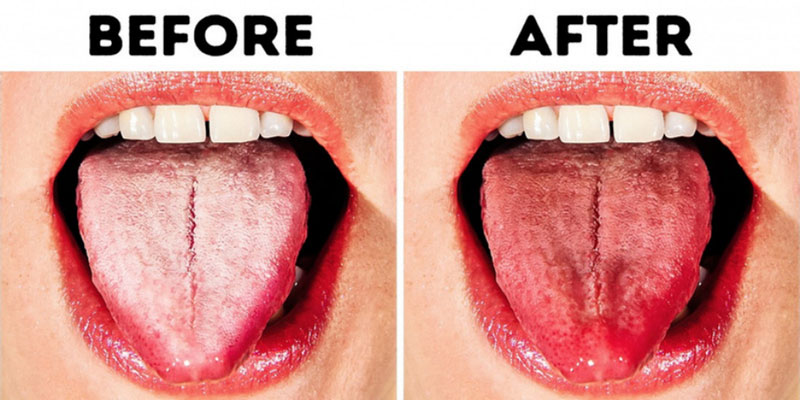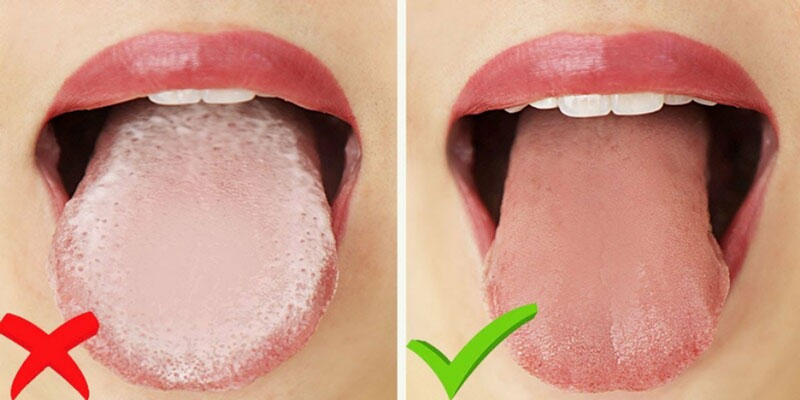You Must Be Aware Of The Reason Behind Your White Tongue
Nov 08, 2023 By Madison Evans
When a thick white film coats the tongue, it is commonly referred to as having a "white tongue." This film may develop all over the language, only on the back, or in patches. Redness, poor breath, and an unpleasant taste on the tongue might also be symptoms. A hairy tongue, a sign similar to a white language, can occur in certain people. The little lumps you can see are your taste buds, the papillae, which have a thick furlike coating. White tongue can develop gradually or suddenly due to irritation or inflammation of the language. There are several potential triggers for a white tongue, but be assured it will pass in a few weeks. The use of an antifungal mouthwash is another option. And if your language stays white for more than a few weeks.
What Precisely Is A "White Tongue"?

White tongues can vary in appearance. If you have a white language, it may seem like a thick, white coating that persists even after brushing, or it may create a delicate lace-like pattern. The tongue's whiteness can manifest in various ways, including the complete covering of the language, the exclusive involvement of the tongue's back, or the appearance of white lumps, specks, or patches. If you have one, there may be more oral symptoms than a white tongue. The Cleveland Clinic says that you could also experience a terrible taste in your mouth, unpleasant breath, or perhaps some redness in addition to your white tongue. White tongues are more likely to have elevated papillae, which the Cleveland Clinic says can lead to foul breath and taste because they provide more surface area for food particles, plaque, and germs to accumulate.
What Are The Possible Causes Of White Tongue?
The tongue turns white because the papillae become blocked, which can happen for several reasons.
Reasons for a white tongue might be:
- Poor oral hygiene results when food, dead cells, germs, and other waste aren't removed regularly and adequately.
- Avoid dehydration by drinking lots of water and other nutritious fluids to nourish the beneficial bacteria in your mouth. A dry, colorless, and cracked tongue might indicate dehydration. Another cause of oral rehydration is sleeping with your mouth open.
- Alcohol and tobacco use: Inadequate oral hygiene, an overly active digestive system, and chemical compounds that disrupt the normal functioning of the bacteria in the mouth can all contribute to developing a white tongue. The tongue and mouth are home to many nerve endings that can be easily irritated by these chemicals.
- Some dietary choices: White tongue can be caused by eating foods that are too mushy or that stay on the tongue for too long. The roughage and "cleaning action" provided by foods with a more consistent texture benefit the tongue.
- Some medications, both over-the-counter and prescribed, can kill the good bacteria in your mouth and cause your tongue to turn white. White tongue can sometimes occur alongside other symptoms, such as a cold or fever, but disappears typically as you start feeling better.
- COVID-19: 'COVID tongue,' a darkening of the tongue caused by the virus, has been seen in several examinations of COVID-19 patients. However, further study is needed, and the CDC is currently revising its materials on the connection between COVID-19 and fungal infections.
How To Treat White Tongue

Make sure you're maintaining good dental hygiene as a first step. Brush your teeth twice daily using a toothpaste designed to prevent cavities, plaque, and floss once a day, in addition to seeing the dentist every six months. As an extra, you can:
- Every three months, either switch to a new electric toothbrush with cutting-edge technology for a professional-level clean or replace your current toothbrush with a new one.
- To better fight against infections, eat more probiotic-rich foods like yogurt, kimchi, pickles, kombucha, and other fermented foods.
- Use a tongue scraper and otherwise brush to remove any lingering food off your tongue gently.
- Cleaning between your teeth and other hard-to-reach places is easier with an irrigator and an interdental brush.
Conclusion
It's normal to feel a little uneasy when you glance in the mirror and see your white tongue mirrored back at you, but this condition is typically harmless. For those unfamiliar, a "white tongue" is a condition in which your language develops a white coating. In some cases, your entire tongue may appear white, while in others, certain areas may show. There is typically no cause for alarm when the language seems white. Rarely, though, this symptom might indicate a more severe problem, such as an infection or cancer in its early stages. Keep an eye on your other symptoms and make an appointment with your doctor if the white coating persists after two weeks.








